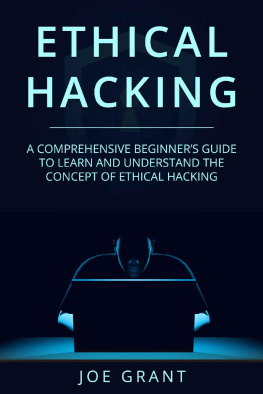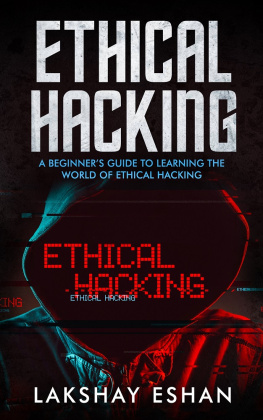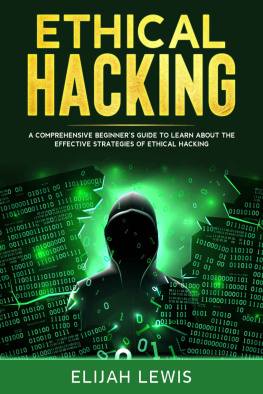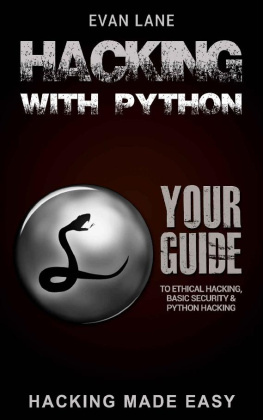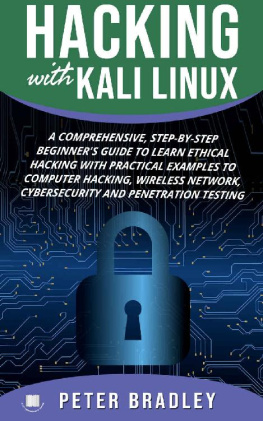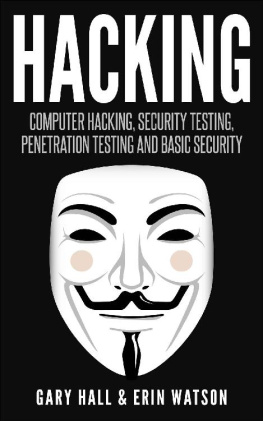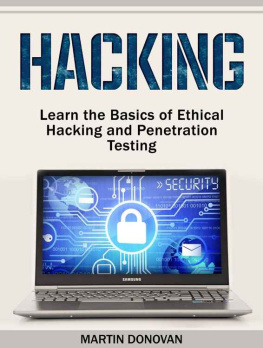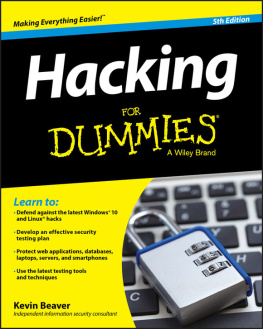
Copyright 2019 - All rights reserved
No portion of this book may be reproduced- mechanically, electronically or by any other means, including photocopying without written permission from the author or the publisher.
Under no circumstances will any blame or legal responsibility be held against the publisher, or author, for any damages, reparation, or monetary loss due to the information contained within this book. Either directly or indirectly.
Legal Notice:
This book is copyright protected. This book is only for personal use. You cannot amend, distribute, sell, use, quote or paraphrase any part, or the content within this book, without the consent of the author or publisher.
Disclaimer Notice:
Please note the information contained within this document is for educational and entertainment purposes only. All effort has been executed to present accurate, up to date, and reliable, complete information. No warranties of any kind are declared or implied. Readers acknowledge that the author is not engaging in the rendering of legal, financial, medical or professional advice. The content within this book has been derived from various sources. Please consult a licensed professional before attempting any techniques outlined in this book.
By reading this document, the reader agrees that under no circumstances is the author responsible for any losses, direct or indirect, which are incurred as a result of the use of information contained within this document, including, but not limited to, errors, omissions, or inaccuracies.

Table of Contents

Introduction
Thank you for purchasing the book, Ethical Hacking - A Comprehensive Beginners Guide to Learn and Understand the Concept of Ethical Hacking.
If you are looking to hack another person's system to obtain information illegally, please stop reading this book right away. You should continue to read the book if you want to learn more about how to test the vulnerabilities in a system or network and want to fix those vulnerabilities. This book provides information on different techniques an ethical hacker can use to identify any vulnerabilities in a system or network and identify a way to fix those vulnerabilities. Most organizations perform this exercise to prevent a malicious hack on the organization's network and infrastructure. This book only talks about ethical hacking, which is a legal way of testing the vulnerabilities in a system. You must understand that both computer and network security constantly evolve. Therefore, you must ensure that you always secure your computer and network from criminal hackers or crackers.
This book lists different tools and techniques that you can use to test the system or network for any vulnerabilities. Once you identify the vulnerabilities, you can work towards improving network security. If you do not know how a hacker thinks, you may not be able to test the system well. If this is the case for you, then you should spend some time to understand how a hacker thinks and use that knowledge when you are assessing the system.
Ethical hacking is also called penetration testing or white hat hacking, and it is used by many organizations to ensure that their network and systems are secure. This book will provide information about different software and tools that you can use when you are performing an ethical hack. There are some sample exercises and programs in the book that you can use to begin the ethical hacking process.
I hope you are able to gather all the information you need from this book. Once again, please refrain from using the content within for any illegal purposes.

Chapter 1
An Introduction to Ethical Hacking
This book focuses solely on ethical hacking. It will detail how you can use different techniques to test your system or network for any vulnerabilities and then fix those vulnerabilities before a cracker exploits them. Most people misuse the word ethical, often not understanding what it even means. The definition given in the Merriam Webster dictionary suits the purpose of this book. An ethical hacker can perform the different tests mentioned in the book once the system owner gives him or her permission to perform the hack.
How Do Hackers Beget Ethical Hackers?
Everyone has heard about hackers, and many people have even suffered losses because of the actions of a hacker. So, who is a hacker, and why is it important for people to learn more about what a hacker does? The next few sections in the book will help you understand the process of hacking and the different types of hackers in the industry.
Who Is a Hacker?
The word hacker can be defined in two ways. A hacker is someone who tinkers with software and electronic systems to understand how they work. They also look for ways to improve the functioning of a network and electronic system. They love the challenge of discovering new ways to make systems work. In recent times, the term hacker has taken on a new meaning. Hackers are people who want to break into a system or network for malicious purposes. These hackers are called crackers or criminal hackers. A cracker will only break into a system or network to steal, delete or modify some confidential information, which can lead to huge losses for an organization or individual.
This book will use the terms hacker and ethical hacker, so its important that you understand what each means and that they differ from one another. A hacker is someone who attacks a system with malicious intent, while an ethical hacker will attack a system to test and fix the vulnerabilities.
An ethical hacker, or a white hat hacker, does not like to be called a hacker because people perceive the word negatively. Crackers claim that they are only helping the system or network owner by hacking it, but thats untrue since they are electronic thieves.
Hackers will always attack a system that they believe they can compromise. Most hackers like to attack a prestigious or well-protected system since its like a game for them. Also, when a hacker can attack a critical website or database, his or her status will increase in the hacker circle.
What Is Ethical Hacking?
Every system or network must always be updated and patched to protect it from a cracker. An ethical hacker is someone who knows how to protect the system or network. An ethical hacker possesses the mindset, tools and the skills of a hacker, but this type of hacker is trustworthy as they only hack systems to run security tests.
If you perform an ethical hacking test for a customer or want to add a certification to your resume, you can sign up for the ethical hacking certification that is sponsored by the ECCouncil. To learn more about the certification, visit their website: www.eccouncil.org/programs/certified-ethical-hacker-ceh/ .
Ethical hacking (also called penetration testing or white hat hacking) uses the same tricks, techniques and tools to test the system. The major difference is that ethical hacking is legal. This type of hacking is performed only when the owner grants the hacker permission. As mentioned earlier, ethical hacking helps the systems owner discover the vulnerabilities in the system from a hackers perspective, helping to improve the systems security. This process is one part of the risk management program, which helps the organization or the system owner enhance the systems security. Ethical hacking backs a vendors claim that the products being sold by the vendor are legitimate.

